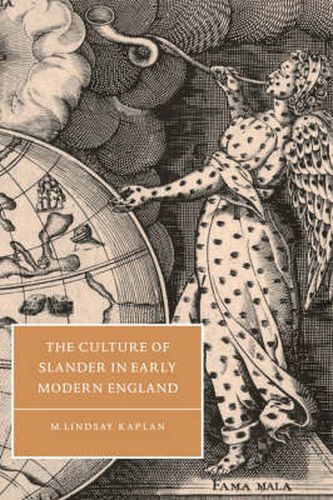Readings Newsletter
Become a Readings Member to make your shopping experience even easier.
Sign in or sign up for free!
You’re not far away from qualifying for FREE standard shipping within Australia
You’ve qualified for FREE standard shipping within Australia
The cart is loading…






Slander constitutes a central social, legal and literary concern of early modern England. A category of discourse which transgresses the law, it offers a more historically grounded and fluid account of power relations between poets and the state than that offered by the commonly accepted model of official censorship. An investigation of slander reveals it to be an effective, unstable and reversible means of repudiating one’s opposition that could be deployed by rulers or poets. Spenser, Jonson and Shakespeare each use the paradigm of slander to challenge official criticism of poetry, while contemporary legal theory associates slander with poetry. However, even as rulers themselves make use of slander in the form of propaganda to demonize those they perceive to be their foes, ultimately they are unable to contain completely the threat posed by slanderous accusations against the state.
$9.00 standard shipping within Australia
FREE standard shipping within Australia for orders over $100.00
Express & International shipping calculated at checkout
Slander constitutes a central social, legal and literary concern of early modern England. A category of discourse which transgresses the law, it offers a more historically grounded and fluid account of power relations between poets and the state than that offered by the commonly accepted model of official censorship. An investigation of slander reveals it to be an effective, unstable and reversible means of repudiating one’s opposition that could be deployed by rulers or poets. Spenser, Jonson and Shakespeare each use the paradigm of slander to challenge official criticism of poetry, while contemporary legal theory associates slander with poetry. However, even as rulers themselves make use of slander in the form of propaganda to demonize those they perceive to be their foes, ultimately they are unable to contain completely the threat posed by slanderous accusations against the state.